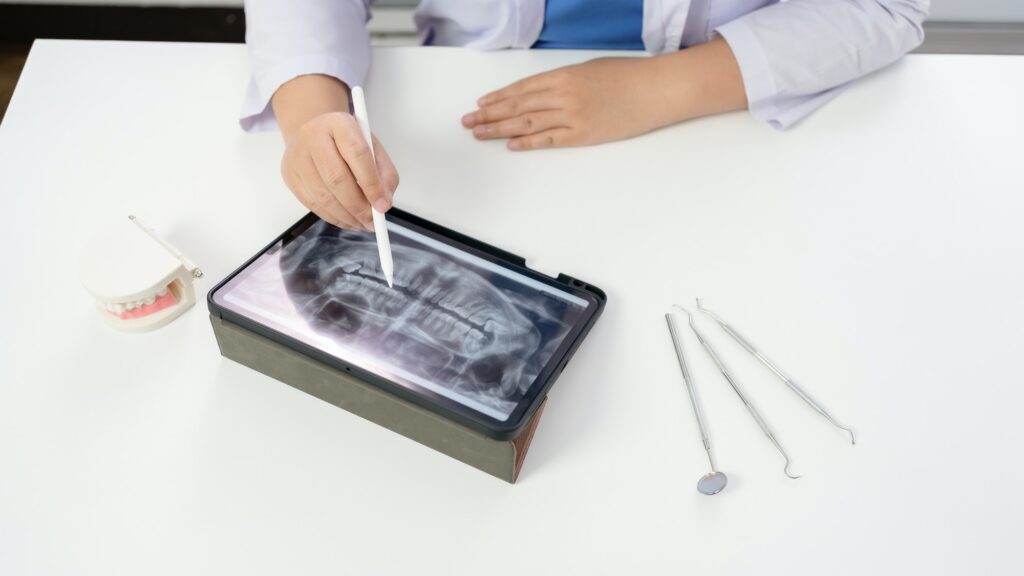Orthognathic Procedures
Several orthognathic surgeries exist to treat various issues with jaw and teeth positioning.

Orthognathic procedures are oral surgeries that correct the position of the jaws and teeth. Orthognathic surgeries are used to treat a variety of problems, including:
- Malocclusion: This is a misalignment of the teeth that can cause problems with chewing, speaking, and appearance.
- Facial asymmetry: This is a condition in which the face is not symmetrical.
- Jaw deformities: This can be caused by birth defects, accidents, or other factors.
There are several different types of orthognathic surgery, but the most common are:
- Maxillary osteotomy: This surgery corrects the position of the upper jaw.
- Mandibular osteotomy: This surgery corrects the position of the lower jaw.
- Bilateral sagittal split osteotomy (BSSO): This surgery cuts the lower jaw on both sides and allows it to be repositioned.
- Genioplasty: This is a surgery that reshapes the chin.
Orthognathic surgery is a complex procedure that should only be performed by a qualified oral and maxillofacial surgeon. The surgery is usually performed under general anesthesia and takes several hours to complete.
After surgery, patients will need to wear braces for several months to allow the bones to heal and the teeth to realign. The recovery period can be challenging, but most patients can return to their normal activities within a few weeks.
Here are some of the risks associated with orthognathic surgery:
- Infection: This is the most common risk associated with orthognathic surgery. Infection can usually be treated with antibiotics.
- Bleeding: This is another common risk associated with orthognathic surgery. Bleeding can usually be controlled with pressure and medication.
- Nerve damage: This is a rare risk associated with orthognathic surgery. Nerve damage can cause numbness or tingling in the lip, chin, or tongue.
- Dry socket: This condition occurs when the blood clot that forms in the extraction site is dislodged. A dry socket can be painful and can take several weeks to heal.
If you are considering orthognathic surgery, talk to your doctor about the risks and benefits of the procedure. They can help you decide if orthognathic surgery is the right choice.
